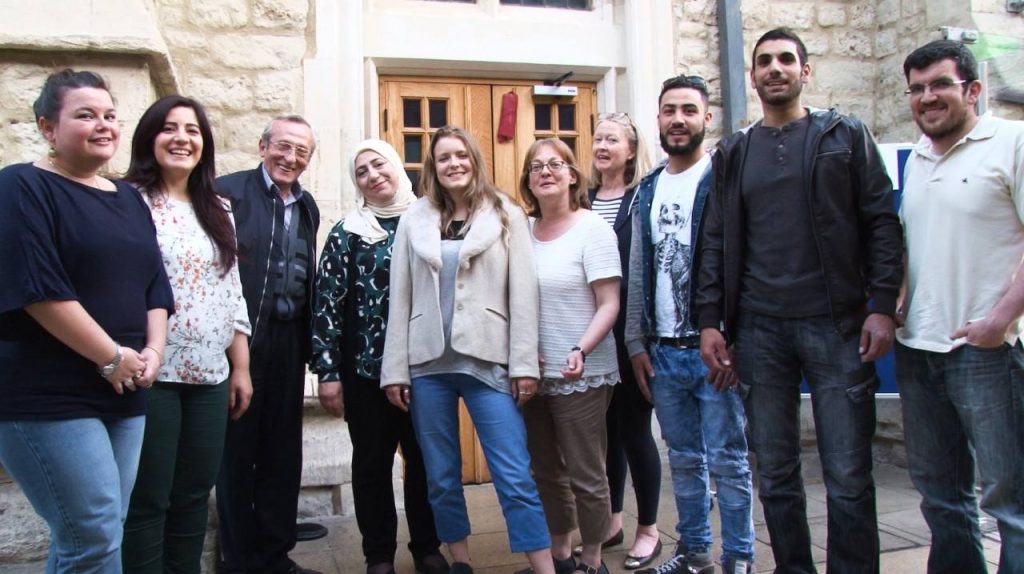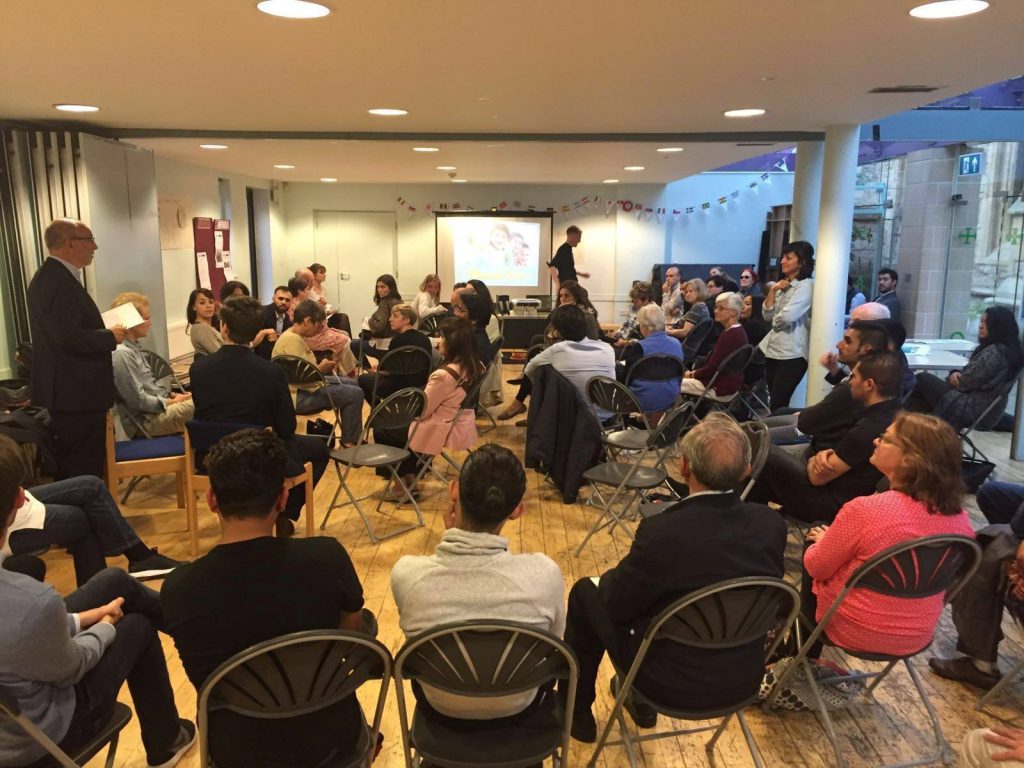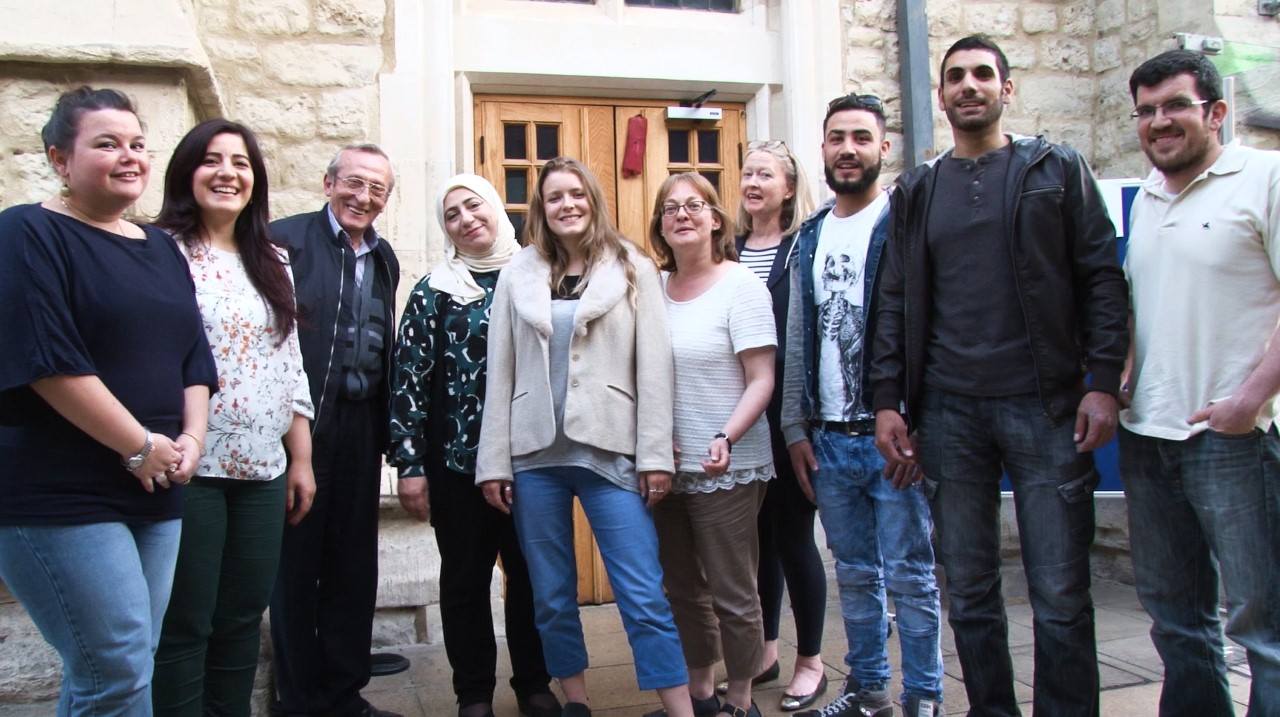Fardous Bahbouh writes about her experiences of volunteering in the UK
Excitement and anticipation were at high levels at the busy St Pancras International station, as Khaled and Mazen (pseudonyms for two Syrian child refugees) went to meet their family members who were waiting outside. There was cheering, hugging, laughter and tears. Their happy reunion also brought tears to my eyes, even though I had only met them that morning in Calais as I was interpreting for them. This was the final stage of a long legal battle lead by Safe Passage – a group of volunteer lawyers, interpreters and refugee charity specialists finding legal routes to asylum – against the Home Office to allow child refugees to be reunited with families in the UK. I was there to witness a great victory of human values and children’s rights.
Those rare precious moments of happiness were the opposite of the horror stories the boys kept telling me about their journey fleeing the war in Syria all the way to Calais, about their months in the Calais jungle, and their desperate attempts to cross to the UK. They kept narrating terrifying stories and pointing from the windows to the long miles of lands they had to walk, the security fences they tried to pass, and the locations where French police attacked the refugees. One of the boys told me: “Tear gas became our daily perfume!”
This made me wonder whether those boys would ever forget the journey and start a ‘normal’ life and whether ordinary people and politicians understand what they have been through.
Before I proceed, let me clarify that this isn’t a catchy news story providing a cool photo of me and the refugees. I am volunteering, not only because I have sincere desire to help, but because I am a refugee myself, like many other volunteers. Here are some main points that deserve being highlighted.
Refugees should not be forced or pushed to share their stories. Focus on earning their trust and friendship instead. Be considerate to their struggle, but treat them as the dignified human being because that is what we used to be and what we are trying to regain. Take their lead when discussing sensitive information. Respect their journey and learn from their strength. And remember refugees can definitely talk about more things than war and loss.

Here are some main points that deserve being highlighted
Diversity
Volunteering with refugees made me realize how different our experiences and stories are. I used to be an English teacher at a university back home in Syria before I came to the UK for my studies. I was planning to return, but because of the war, I was stuck away from home.
I have never experienced living in a war zone, only through my laptop while reading the news, watching horrifying video footage or spending long hours on Facebook checking my friends’ profiles to make sure they are still alive. I went through denial, panic, intensified prayers and terrifying nightmares. Sometimes, when I forced myself to have a ‘normal’ life, I ended up stuck in the merciless complications of survivor guilt. Luckily, I can still smile and hold on to my optimism and I made London my second home.
Every refugee has their own journey. Every one has personal struggles, losses, hopes, achievements and disappointments. It is frustrating when people use the word refugee as a blank term; we are humans with values, pains, dreams, emotions and passions. We come from various backgrounds, with different levels of education, professional skills and talents.
Resilience
Despite our diversity, resilience is a common characteristic. The inspiring stories of refugees’ determination, defiance and strength in the face of tragedies; this resilient spirit brings meaning and hope. Our resilience also inspires our deep desire to help each other and our host communities. A group of us, Syrian refugees and British Syrians, along with the help of friends of various nationalities, started a community group “Syrian Ahlan Wa Sahlan” to welcome refugees to London.
It goes without saying travelling to a foreign country brings a lot of challenges and opportunities. Any person moving to another country has to adapt to new system, experience cultural shock and deal with homesickness. When I first arrived to college campus in the USA, we had an induction week for international students to learn about life in the US and to ease the cultural shock. Refugees do not have the opportunity for such training – and neither do their host communities.
Dignity
Despite all trauma, our dignity is what keeps us going and helps us create meaning in our new lives: we want to be productive and give back to our community.
But the system has failed asylum seekers and refugees. Asylum seekers are usually not allowed to work. Refugees who used to be successful professionals in their countries, such as doctors, engineers, lawyers, carpenters, builders and artists, find themselves left out either because their university degrees are not approved in the UK, or simply because they can’t find a job without UK work experience and they need a job in order to have experience in the UK.
These are missed opportunities, because being able to work helps maintain feelings of independence and self-sufficiency. Preventing refugees from contributing to society in their areas of expertise can leave them vulnerable to exploitation, or force them to work jobs that they are way overqualified for – and sometimes it leaves them unemployed.
In our group Syrian Ahlan wa Sahlan, we posted an announcement seeking volunteers to help organizes a Syrian dinner as a community-building event – and so many refugees offered to help out, more than usually come to benefit from our services. I was deeply touch with all the enthusiasm and willingness to help and contribute. I believe that we need to create more opportunities, more ways to empower refugees.
Trust
On a diversity training workshop for charities working with refugees in London, a common question I heard was about how to find refugees and how to gain their trust.
As refugees are feeling wars or life threating situations, it is understandable that it takes time and efforts to build trust – that’s human nature. After experiencing fear, disappointment and betrayal, trusting people become harder – and that is made even worse if the refugee does not speak English. The system here does not allow asylum seekers access to English classes until they are granted asylum in months or years. This means they are locked away from society because of the language barrier until the Home Office decides on their asylum – and then, they are magically expected to integrate into society.
I also learned that integration is a two-way process. Welcoming and supporting refugees is essential if we expect successful integration.
Through our volunteers work, I have witnessed plenty of successful instances of trust-building and integration. For example, during the month of Ramadan we had a celebration of interfaith and community building activities. We co-organized an Iftar dinner at the Christ the Saviour Church and we attended a meeting at St John’s church. In both churches, we broke our fast and performed our Islamic prayers in a church room with our friends from various backgrounds and religions.

Identity
Can you imagine having to give away your national ID card and passport and replacing them with a foreign travel document? I cried my eyes out for nights before I had to go to the Home Office and hand in my Syrian passport. I can’t rationalise that, but it felt strange and sad. I see this with other refugees I meet and I know it takes time to accept that we have a new identity – even though eventually we do end up cherishing it.
The experience of being protected and granted a safe place to live becomes part of who we are. It does not end after the five years when we get unlimited leave to remain in the UK, or even when we later apply for citizenship. For many refugees, this identity is held for generations. We keep it close to our hearts and for the rest of our lives we remember that we were welcomed and given a second chance.
